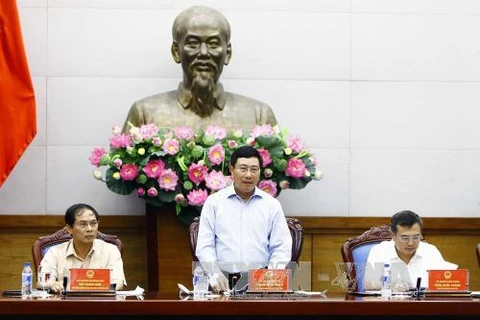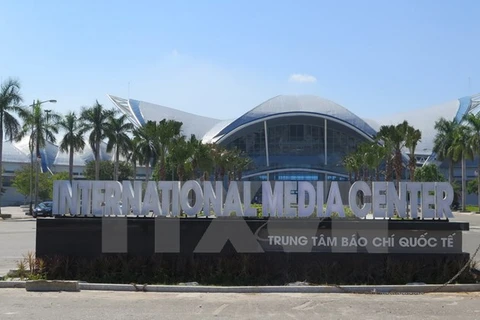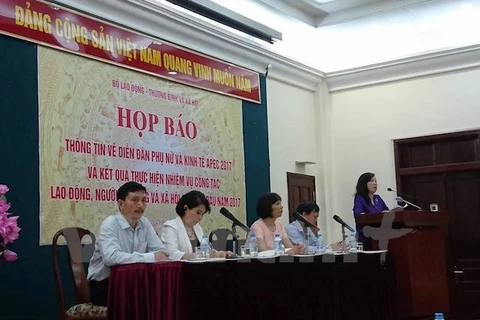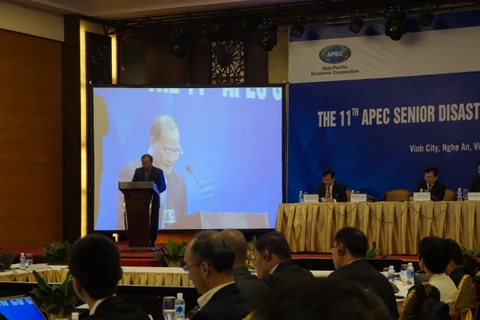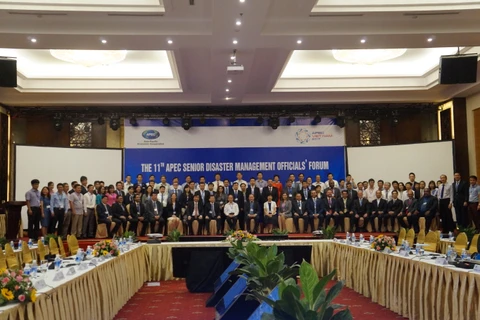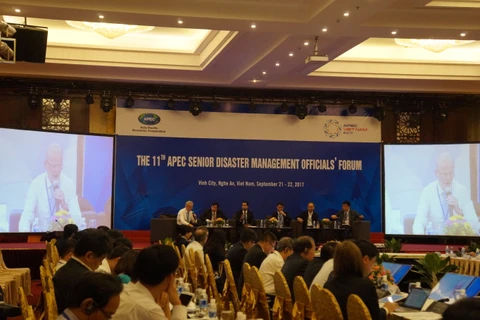Nghe An (VNA) – The 11th APEC Senior Disaster Management Officials Forum (SDMOF 11) concluded on September 22 in central Nghe An province, after participants agreed to submit major recommendations to APEC leaders on fostering inter-regional cooperation and technological innovation for more effective response to natural disasters and recovery.
Tran Quang Hoai, Director of the Vietnam Disaster Management Authority, said that APEC officials pointed to the crucial necessity to develop supporting tools in disaster risk management and the application of advanced sciences and technologies in the field, with priority given to forecasting and alerting activities.
They held that disaster mitigation must be implemented in parallel with ensuring sustainable growth and realising the UN Sustainable Development Goals, while stressing the need for training courses and technology transfer to recognise and prevent disasters.
At the same time, the APEC officials also highlighted the need to invest more in preparation and recovery activities, with stronger engagement of the private sector and the community to foster connections among State agencies, science and technology research facilities, investors and the community, Hoai said.
Noting that APEC economies still face many challenges posed by natural disasters and climate change, Hoai stressed that it is crucial for them to continue learning from each other’s experience and sharing technology as the application of sciences and technologies is the only way to deal with inter-regional problems.
He expressed his hope that the APEC economies will make greater progress in science and technology cooperation and in the implementation of recommendations stated in the Sendai Framework for Disaster Risk Reduction 2015-2030.
Within the framework of the event, the APEC senior officials also discussed the enhancement of cooperation and innovation of advanced technologies to effectively support the effective inter-regional emergency response to “new normal” disasters and the development of solutions for information infrastructure in reducing natural risks.
Established in 1989, the Asia-Pacific Economic Cooperation (APEC) forum comprises 21 economies, including Australia, Brunei, Canada, Chile, China, Hong Kong (China), Indonesia, Japan, the Republic of Korea, Malaysia, Mexico, New Zealand, Papua New Guinea, Peru, the Philippines, Russia, Singapore, Chinese Taipei, Thailand, the US and Vietnam.
The APEC economies account for 39 percent of the world population, 57 percent of the world GDP and 47 percent of the global trade.-VNA
Tran Quang Hoai, Director of the Vietnam Disaster Management Authority, said that APEC officials pointed to the crucial necessity to develop supporting tools in disaster risk management and the application of advanced sciences and technologies in the field, with priority given to forecasting and alerting activities.
They held that disaster mitigation must be implemented in parallel with ensuring sustainable growth and realising the UN Sustainable Development Goals, while stressing the need for training courses and technology transfer to recognise and prevent disasters.
At the same time, the APEC officials also highlighted the need to invest more in preparation and recovery activities, with stronger engagement of the private sector and the community to foster connections among State agencies, science and technology research facilities, investors and the community, Hoai said.
Noting that APEC economies still face many challenges posed by natural disasters and climate change, Hoai stressed that it is crucial for them to continue learning from each other’s experience and sharing technology as the application of sciences and technologies is the only way to deal with inter-regional problems.
He expressed his hope that the APEC economies will make greater progress in science and technology cooperation and in the implementation of recommendations stated in the Sendai Framework for Disaster Risk Reduction 2015-2030.
Within the framework of the event, the APEC senior officials also discussed the enhancement of cooperation and innovation of advanced technologies to effectively support the effective inter-regional emergency response to “new normal” disasters and the development of solutions for information infrastructure in reducing natural risks.
Established in 1989, the Asia-Pacific Economic Cooperation (APEC) forum comprises 21 economies, including Australia, Brunei, Canada, Chile, China, Hong Kong (China), Indonesia, Japan, the Republic of Korea, Malaysia, Mexico, New Zealand, Papua New Guinea, Peru, the Philippines, Russia, Singapore, Chinese Taipei, Thailand, the US and Vietnam.
The APEC economies account for 39 percent of the world population, 57 percent of the world GDP and 47 percent of the global trade.-VNA
VNA

